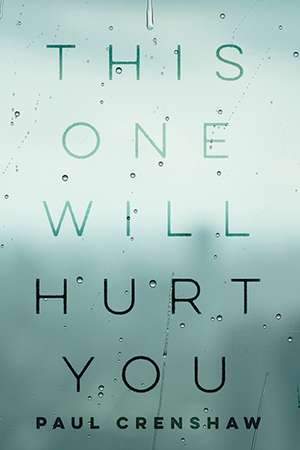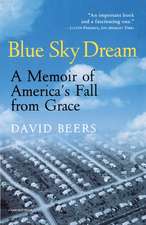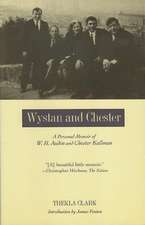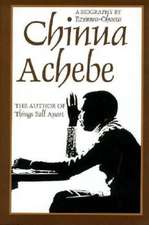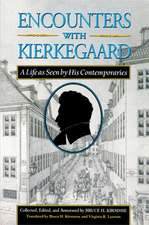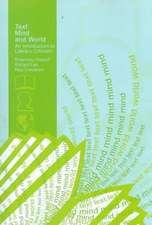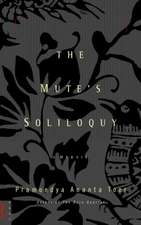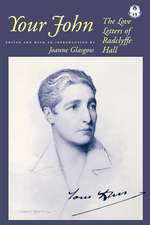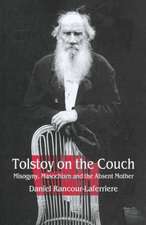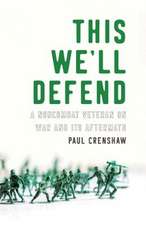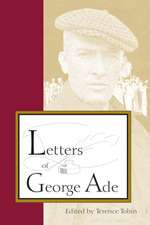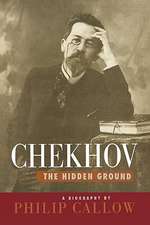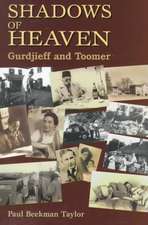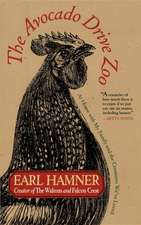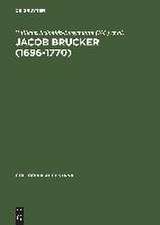This One Will Hurt You: 21st Century Essays
Autor Paul Crenshawen Limba Engleză Paperback – 18 mar 2019
The powerful essays in Paul Crenshaw’s This One Will Hurt You range in subject matter from the fierce tornadoes that crop up in Tornado Alley every spring and summer to a supposedly haunted one-hundred-year-old tuberculosis sanatorium that he lived on the grounds of as a child. They ruminate on the effects of crystal meth on small southern towns, Maurice Sendak’s Where the Wild Things Are, and the ongoing struggle of being a parent in an increasingly disturbing world. They surprise, whether discovering a loved one’s secret, an opossum’s motivation, or the unexpected decision four beer-guzzling, college-aged men must make. They tell stories of family and the past, the histories of small things such as walls and weather, and the faith it takes to hold together in the face of death.
With eloquence, subtle humor, and an urgent poignancy, Crenshaw delivers a powerful and moving collection of nonfiction essays, tied together by place and the violence of the world in which we live.
With eloquence, subtle humor, and an urgent poignancy, Crenshaw delivers a powerful and moving collection of nonfiction essays, tied together by place and the violence of the world in which we live.
Din seria 21st Century Essays
-
 Preț: 160.80 lei
Preț: 160.80 lei -
 Preț: 144.33 lei
Preț: 144.33 lei -
 Preț: 108.17 lei
Preț: 108.17 lei -
 Preț: 140.55 lei
Preț: 140.55 lei -
 Preț: 111.26 lei
Preț: 111.26 lei -
 Preț: 105.16 lei
Preț: 105.16 lei -
 Preț: 106.20 lei
Preț: 106.20 lei -
 Preț: 166.06 lei
Preț: 166.06 lei -
 Preț: 127.45 lei
Preț: 127.45 lei -
 Preț: 108.03 lei
Preț: 108.03 lei -
 Preț: 140.47 lei
Preț: 140.47 lei -
 Preț: 103.91 lei
Preț: 103.91 lei -
 Preț: 155.05 lei
Preț: 155.05 lei -
 Preț: 147.11 lei
Preț: 147.11 lei -
 Preț: 145.96 lei
Preț: 145.96 lei -
 Preț: 174.52 lei
Preț: 174.52 lei -
 Preț: 178.10 lei
Preț: 178.10 lei -
 Preț: 148.67 lei
Preț: 148.67 lei -
 Preț: 170.25 lei
Preț: 170.25 lei -
 Preț: 132.52 lei
Preț: 132.52 lei -
 Preț: 176.88 lei
Preț: 176.88 lei -
 Preț: 143.44 lei
Preț: 143.44 lei -
 Preț: 145.35 lei
Preț: 145.35 lei -
 Preț: 148.41 lei
Preț: 148.41 lei -
 Preț: 149.08 lei
Preț: 149.08 lei -
 Preț: 166.85 lei
Preț: 166.85 lei -
 Preț: 173.50 lei
Preț: 173.50 lei -
 Preț: 172.69 lei
Preț: 172.69 lei -
 Preț: 103.72 lei
Preț: 103.72 lei -
 Preț: 119.18 lei
Preț: 119.18 lei -
 Preț: 104.95 lei
Preț: 104.95 lei
Preț: 112.49 lei
Nou
Puncte Express: 169
Preț estimativ în valută:
21.53€ • 23.40$ • 18.10£
21.53€ • 23.40$ • 18.10£
Carte disponibilă
Livrare economică 31 martie-14 aprilie
Preluare comenzi: 021 569.72.76
Specificații
ISBN-13: 9780814255216
ISBN-10: 0814255213
Pagini: 168
Dimensiuni: 140 x 216 x 15 mm
Greutate: 0.2 kg
Ediția:1
Editura: Ohio State University Press
Colecția Mad Creek Books
Seria 21st Century Essays
ISBN-10: 0814255213
Pagini: 168
Dimensiuni: 140 x 216 x 15 mm
Greutate: 0.2 kg
Ediția:1
Editura: Ohio State University Press
Colecția Mad Creek Books
Seria 21st Century Essays
Recenzii
“Every move here feels intentional, every paragraph placed just so, resulting in a book that is a gift for personal nonfiction lovers. Uncommonly affecting, This One Will Hurt You is a debut collection of straightforward beauty.” —Jason Hess, Booklist
“Essayist Crenshaw explores in his tender solo debut growing up and living in rural America and coming to terms with unsettling memories. . . . Crenshaw’s evocative descriptions of place balance well with his confessional style. Throughout this fine collection, Crenshaw proves a deeply self-reflective narrator, able to expose his innermost worries while remaining keenly aware of the world around him.”
—Publishers Weekly
—Publishers Weekly
“An essayist focuses on family dynamics and the mortality that challenges us all. . . . The author is a consummate craftsman, whether of concision . . . or in a longer illumination of the elliptical slipperiness of truth.” —Kirkus Reviews
“Crenshaw weaves poignant images throughout these essays, capturing beauty, mystery, and pain embedded in the hills and streams of the real Ozarks. . . . Crenshaw searches the soul and wrestles with hard realities and bitter truths, and his essays will cling, fast as a burr.” —Deb Hagan, Brevity
“Paul Crenshaw writes some of the finest prose you’ll find anywhere and does so without a trace of literary gimmickry or personal showboating. If Chekhov wrote essays, this is what they would sound like.” —Robert Atwan
“You’ll find no romanticizing or myth-building here. This One Will Hurt You is a devastating and necessary book, frequently heartbreaking in its examination of the bad humans can do to one another—but full of redemptive acts of goodness, too.”— Holly Goddard Jones, author of The Salt Line
Notă biografică
Paul Crenshaw is the coauthor of Text, Mind, and World: An Introduction to Literary Criticism. He was a finalist for the Bakeless Prize and the recipient of a Pushcart Prize in 2017. His writing has appeared in Best American Essays, Brevity, North American Review, Ascent, Gulf Stream, The Rumpus, Hotel Amerika, and River Teeth, among many other venues.
Extras
After the Ice
When I was seventeen an ice storm moved through my hometown in Arkansas and coated the roads and trees with a thin layer of ice. I remember the ice only because later that morning I would receive a phone call that my nephew Keith, my stepsister’s son, was in the hospital. There were few details, just that he was hurt in some way and it looked serious, and driving there, the day was so bright it hurt the muscles behind my eyes. Ice covered the fields where cows searched for grass, their breath fanning the air before them. On top of telephone poles hawks sat waiting, sharp eyes scanning the fields for movement. The few cars on the road drove slowly, fearing the ice, though by that time it was melting, and small streams ran across the road, the water turned brown and dirty from the salt and cinders the county road crews had dumped the night before.
At the hospital, my family gathered in the hall outside the emergency room. Every few minutes the door opened and a nurse came out, and when the door opened we could see my nephew laid out on the operating table, tubes down his throat, his pajamas open and his small chest, thin and frail as a bird’s, failing to rise and fall. He was eighteen months old. In a few hours he would be pronounced dead, and not long after that one of the nurses on duty would call the police to report that this was not an accident. There were bruises on his neck and shoulders, and before night fell again Keith’s stepfather was under investigation for murder.
I have scans of the old newspaper articles saved on my computer now. My mother, at my request, found old microfilm reels at the library and emailed them to me. I read them sometimes, late at night, when my daughters are asleep, though when they first arrived in my inbox, it took me months to open them.
The first one is dated February 8, and is titled “Boy’s Death Investigated.” According to the article, the un-named boy died of “severe head injuries,” and after his death his body was sent to the state medical examiner in Little Rock. The Logan County Sheriff stated that police were waiting on an autopsy, but they suspected the boy’s death was related to child abuse.
The next article is six months later. After three days of trial, and a jury deliberation of less than two hours, the stepfather was convicted of first degree murder. In his testimony, he said that his stepson had wandered outside while he was on the phone. In the courtroom he was clean-shaven, his hair cut short, and he wore a long-sleeve blue shirt with a dark blue tie. His hands moved as he talked, and his eyes roamed about the courtroom, not landing on anyone. When he hung up the phone, he saw the boy outside, by the woodpile. He lay on his back, the stepfather said. He was not moving.
At the hospital, the nurses first noticed, and later the medical examiner confirmed, four small bruises on Keith’s forehead. There were large pictures set up on exhibit stands in the courtroom, and the medical examiner pointed to each one with a pointer. He made a circling motion around the four bruises, spaced apart like knuckles. There were also deep bruises on Keith’s neck. In the courtroom the picture sat next to another picture of my nephew in overalls, holding a stuffed tiger. He was smiling then, laughing at whatever silly toy the cameraman was holding up. He had only a few teeth in the picture, and his blonde hair was combed so fine you could hardly see it, like the way a baby’s hair will disappear in the bathtub. As he was shaken, his brain crashed around inside his skull. The blood vessels feeding his brain were torn. Blood pooled within his skull, creating pressure. His brain swelled. At some point he lost consciousness. He was not breathing when he arrived at the hospital. In the hours he lay on the emergency room table, he did not breathe on his own. In the parking lot my stepbrother lit one cigarette from the butt of another. In the hallway outside the room, we all waited, impotent and raging. In the big corner mirrors the nurses came and went.
When I was seventeen an ice storm moved through my hometown in Arkansas and coated the roads and trees with a thin layer of ice. I remember the ice only because later that morning I would receive a phone call that my nephew Keith, my stepsister’s son, was in the hospital. There were few details, just that he was hurt in some way and it looked serious, and driving there, the day was so bright it hurt the muscles behind my eyes. Ice covered the fields where cows searched for grass, their breath fanning the air before them. On top of telephone poles hawks sat waiting, sharp eyes scanning the fields for movement. The few cars on the road drove slowly, fearing the ice, though by that time it was melting, and small streams ran across the road, the water turned brown and dirty from the salt and cinders the county road crews had dumped the night before.
At the hospital, my family gathered in the hall outside the emergency room. Every few minutes the door opened and a nurse came out, and when the door opened we could see my nephew laid out on the operating table, tubes down his throat, his pajamas open and his small chest, thin and frail as a bird’s, failing to rise and fall. He was eighteen months old. In a few hours he would be pronounced dead, and not long after that one of the nurses on duty would call the police to report that this was not an accident. There were bruises on his neck and shoulders, and before night fell again Keith’s stepfather was under investigation for murder.
I have scans of the old newspaper articles saved on my computer now. My mother, at my request, found old microfilm reels at the library and emailed them to me. I read them sometimes, late at night, when my daughters are asleep, though when they first arrived in my inbox, it took me months to open them.
The first one is dated February 8, and is titled “Boy’s Death Investigated.” According to the article, the un-named boy died of “severe head injuries,” and after his death his body was sent to the state medical examiner in Little Rock. The Logan County Sheriff stated that police were waiting on an autopsy, but they suspected the boy’s death was related to child abuse.
The next article is six months later. After three days of trial, and a jury deliberation of less than two hours, the stepfather was convicted of first degree murder. In his testimony, he said that his stepson had wandered outside while he was on the phone. In the courtroom he was clean-shaven, his hair cut short, and he wore a long-sleeve blue shirt with a dark blue tie. His hands moved as he talked, and his eyes roamed about the courtroom, not landing on anyone. When he hung up the phone, he saw the boy outside, by the woodpile. He lay on his back, the stepfather said. He was not moving.
At the hospital, the nurses first noticed, and later the medical examiner confirmed, four small bruises on Keith’s forehead. There were large pictures set up on exhibit stands in the courtroom, and the medical examiner pointed to each one with a pointer. He made a circling motion around the four bruises, spaced apart like knuckles. There were also deep bruises on Keith’s neck. In the courtroom the picture sat next to another picture of my nephew in overalls, holding a stuffed tiger. He was smiling then, laughing at whatever silly toy the cameraman was holding up. He had only a few teeth in the picture, and his blonde hair was combed so fine you could hardly see it, like the way a baby’s hair will disappear in the bathtub. As he was shaken, his brain crashed around inside his skull. The blood vessels feeding his brain were torn. Blood pooled within his skull, creating pressure. His brain swelled. At some point he lost consciousness. He was not breathing when he arrived at the hospital. In the hours he lay on the emergency room table, he did not breathe on his own. In the parking lot my stepbrother lit one cigarette from the butt of another. In the hallway outside the room, we all waited, impotent and raging. In the big corner mirrors the nurses came and went.
Cuprins
After the Ice
My Possum Problem, and How it Finally Ended
The Wild Thing With People Feet Was My Favorite
The Night Before Christmas
Cold
Of Little Faith
Storm Country
Girl on the Third Floor
The Bear
Palm Sunday
Brief and Selected History
The Giving of Food
Web
Lightning and Thunder
This One Will Hurt You
Acknowledgements
My Possum Problem, and How it Finally Ended
The Wild Thing With People Feet Was My Favorite
The Night Before Christmas
Cold
Of Little Faith
Storm Country
Girl on the Third Floor
The Bear
Palm Sunday
Brief and Selected History
The Giving of Food
Web
Lightning and Thunder
This One Will Hurt You
Acknowledgements
Descriere
Essays on place and violence and the faith it takes to hold a family together in the world in which we live.
